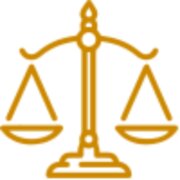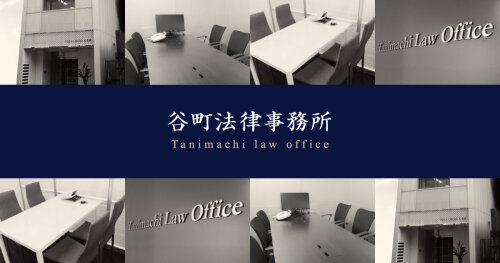Best Brain Injury Lawyers in Osaka
Share your needs with us, get contacted by law firms.
Free. Takes 2 min.
List of the best lawyers in Osaka, Japan
About Brain Injury Law in Osaka, Japan
Brain injuries can be life-changing, impacting not only the injured individual but also their family members and loved ones. In Osaka, Japan, brain injury law encompasses the legal rights and remedies available to individuals who have suffered traumatic or acquired brain injuries as a result of accidents, medical malpractice, or other circumstances. Japanese law provides various ways for victims to seek compensation, hold responsible parties accountable, and access needed medical care and support services.
Osaka, as one of Japan’s largest cities, sees numerous brain injury cases related to traffic accidents, workplace incidents, assaults, and medical errors. Navigating the legal landscape surrounding brain injury claims can be complex and may require knowledgeable advice to ensure an individual’s rights are protected and their needs are met.
Why You May Need a Lawyer
Seeking legal assistance following a brain injury is often necessary due to the intricacies of Japanese civil liability law and the unique challenges involved in proving and quantifying brain damage. Some common situations that may require the support of a lawyer include:
- Traffic Accidents: Victims may need help securing compensation or negotiating with insurance companies after collisions involving motor vehicles, bicycles, or pedestrians.
- Workplace Incidents: Individuals injured at work may face difficulties claiming compensation under workers’ accident compensation insurance or pursuing a negligence claim against their employer.
- Medical Malpractice: Mistakes during surgery, misdiagnosis, or treatment negligence can result in brain injury, and proving liability in such cases often involves complex medical and legal matters.
- Assault or Criminal Acts: Victims of violence may need legal representation both in criminal proceedings and in claiming restitution through civil action.
- Insurance Disputes: Insurers may contest the extent of injuries or the amount of compensation, requiring legal intervention to resolve disputes fairly.
A lawyer experienced in brain injury cases can gather necessary evidence, ensure that appropriate medical assessments are conducted, negotiate settlements, or represent you in court if required. It can also be challenging for families to navigate paperwork or language barriers, especially for non-Japanese speakers, making legal support essential.
Local Laws Overview
Several Japanese laws are particularly relevant to brain injury cases in Osaka:
- Civil Code (Minpo): Sets out the framework for personal injury claims, including liability for negligence and compensation for damages such as medical expenses, lost wages, pain and suffering, and long-term disability.
- Automobile Liability Security Act: Provides for compulsory automobile insurance to ensure that victims of traffic accidents receive basic compensation, even if the liable party is unable to pay.
- Workers’ Accident Compensation Insurance Act: Covers brain injuries sustained in the workplace, providing insurance benefits regardless of fault in many situations but also allowing for additional damages if negligence is proven.
- Statute of Limitations: In general, claims for personal injury must be brought within three years of learning about the injury and the responsible party. Exceptions may apply in certain circumstances, so timely action is crucial.
- Criminal Injury Benefits: Victims of criminal acts that result in brain injury may be entitled to compensation through the government’s crime victim compensation program.
It is important to note that compensation amounts for pain and suffering in Japan are typically lower than those in many Western countries, and procedures can be lengthy and complex. Legal guidance is often necessary to make the best case under Japanese law.
Frequently Asked Questions
What should I do immediately after a brain injury occurs?
Seek emergency medical attention immediately and ensure all injuries are properly documented. If possible, collect evidence of how the injury occurred, such as photographs, witness contact information, and incident reports.
How do I know if I am eligible for compensation?
Eligibility depends on the cause of the injury and the circumstances involved. If your injury occurred due to someone else’s negligence or wrongful act, you may be entitled to compensation for damages under Japanese law.
What types of compensation can I claim?
Compensation may cover medical expenses, rehabilitation costs, lost wages, pain and suffering, home modifications, and future care needs. The specific damages available will depend on the legal route taken.
How long do I have to file a claim?
Generally, you have three years from the date you learn of the injury and the responsible party. However, exceptions exist, especially in cases involving minors or delayed symptom onset, so consult a lawyer promptly.
Can foreigners or non-residents claim compensation for brain injury in Osaka?
Yes, non-Japanese citizens and visitors may claim compensation if the injury occurred in Japan or involves a Japanese party. Language and procedural barriers may exist, so specialized legal assistance is advisable.
What if the responsible party refuses to pay compensation?
You may need to file a civil lawsuit to recover damages. In traffic accidents, the compulsory insurance scheme provides a minimum level of compensation even if the liable party cannot pay.
How is the severity of a brain injury assessed in Japan?
Medical professionals use neurological evaluations and standardized scales such as the Glasgow Coma Scale and MRI findings to assess severity. These assessments influence compensation calculations and eligibility for insurance benefits.
Are there specific lawyers who specialize in brain injury cases?
Yes, some law firms and lawyers in Osaka focus on personal injury law and have experience with brain injury cases. They are well-versed in both medical and legal matters relevant to your case.
Is mediation or settlement possible instead of going to court?
Yes, many brain injury cases are resolved through negotiation or mediation to avoid lengthy court proceedings. A lawyer can help you determine the best approach.
What government support is available for brain injury victims?
Governmental bodies and local government offer various forms of welfare, rehabilitation, and disability support. Accessing these services may require documentation and applications, which a lawyer or social worker can help prepare.
Additional Resources
If you or a loved one has suffered a brain injury in Osaka, consider reaching out to the following resources for further support and information:
- Osaka Bar Association: Maintains a list of qualified lawyers and offers legal consultation services.
- Japan Legal Support Center (Houterasu): Provides free or low-cost legal advice, particularly for those in financial need or with language barriers.
- Local Ward Offices: Can offer information on welfare services, disability registration, and financial assistance for people with acquired disabilities.
- Osaka Prefectural Government: Offers information on medical services, social welfare, and rehabilitation programs for the disabled.
- Brain Injury Associations: National and local support groups provide guidance, emotional support, and assistance with navigating the healthcare and legal systems.
- Japan-Accident Victims' Compensation System: Information on compensation schemes for traffic and workplace accidents.
Next Steps
If you or someone you know is facing the aftermath of a brain injury in Osaka, the following steps can help you move forward:
- Obtain prompt and thorough medical evaluation and treatment. Keep all records and receipts related to care.
- Document the circumstances of the injury as thoroughly as possible.
- Consult a lawyer experienced in brain injury or personal injury litigation to assess your case and explain your legal rights.
- Contact support organizations or your local ward office for assistance with social services, rehabilitation, and disability support programs.
- If finances are a concern, seek advice from free legal services such as Houterasu or municipal consultation centers.
- Discuss with your lawyer the best approach, whether through negotiation, mediation, or litigation, to protect your interests and secure the support you need.
Taking swift action and seeking expert advice improves your chances of getting appropriate compensation and support to manage the long-term effects of a brain injury. Remember, you do not have to face the legal complexities alone - professional help is available in Osaka to guide you each step of the way.
Lawzana helps you find the best lawyers and law firms in Osaka through a curated and pre-screened list of qualified legal professionals. Our platform offers rankings and detailed profiles of attorneys and law firms, allowing you to compare based on practice areas, including Brain Injury, experience, and client feedback.
Each profile includes a description of the firm's areas of practice, client reviews, team members and partners, year of establishment, spoken languages, office locations, contact information, social media presence, and any published articles or resources. Most firms on our platform speak English and are experienced in both local and international legal matters.
Get a quote from top-rated law firms in Osaka, Japan — quickly, securely, and without unnecessary hassle.
Disclaimer:
The information provided on this page is for general informational purposes only and does not constitute legal advice. While we strive to ensure the accuracy and relevance of the content, legal information may change over time, and interpretations of the law can vary. You should always consult with a qualified legal professional for advice specific to your situation.
We disclaim all liability for actions taken or not taken based on the content of this page. If you believe any information is incorrect or outdated, please contact us, and we will review and update it where appropriate.









